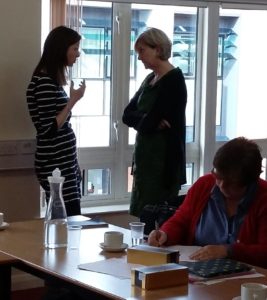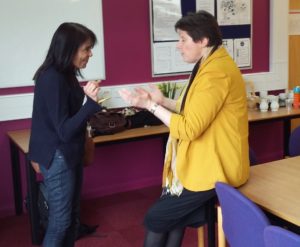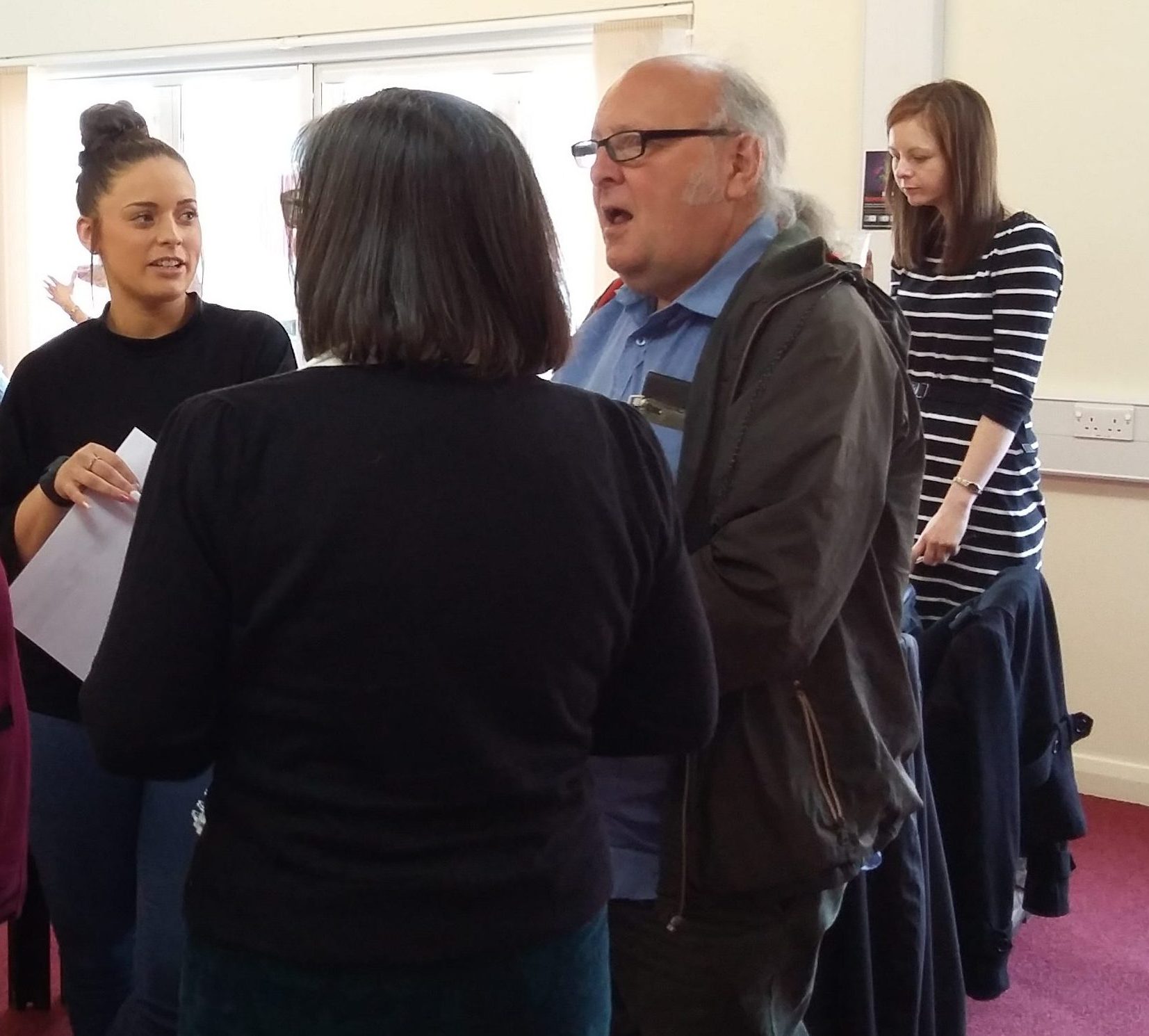The final formal meeting of the Impact Advisory Group met on the 23rd March at The Open University (although we anticipate that many more informal meetings and conversations will take place over the next year).
The group once again provided a day of rich discussion and reflection. The project has now moved into the third phase in which it will identify where and how specific types of findings and data can be developed into resources for education/training and influence debates about the profession of social work. The research team shared a summary of data collected and early findings from the project in the context of the overall theoretical approach, which has involved an empirical commitment to observe, explore what, where and how people engage with texts including their perspectives and interests and a theoretical interest in seeking explanations for the nature and consequences of what people do/think – including a focus on issues of power and agency.
The data collected, drawn from working with 5 agencies, now includes interviews with 70 social workers, 10 weeks of researcher observations, 481 days of social worker writing activity logs and over 1.2 million words of written discourse based on anonymised texts. The process of analysing this data will be ongoing but Theresa Lillis, the Principal Investigator, summarised some of the emerging themes:
- Writing is going on for different purposes and across a range of types and technologies including digital and handwritten. The project has been categorising writing types based on all the data collected.
- The key differences between written texts are rhetorical, rather than grammatical. For example, the ‘voice’ of the social worker and the ‘voices’ of service users are presented in different ways.
- Analysis at the level of individual words used shows that a small number of core words appear frequently in social work writing.
- Data clearly indicated that a considerable amount of time is being spent on writing and in most cases social workers underestimated the amount of time they were spending writing. The team identified that writing takes place in most hours of most days and often outside of official working hours and alongside other activities.

Image: Lisa Lewis (Adoption Team Manager) in conversation with Theresa Lillis (WiSP Principal Investigator) and Janet Melville-Wiseman (Learning and Teaching, JUCSWEC)
In addition to this data collection, Theresa and I have been meeting with a range of stakeholders and contributors to the project including Health and Care Professionals Council, Unison and the Joint University Council Social Work Education Committee (JUCSWEC). These discussions have contributed to the data collected and generated ideas which add to thinking around developing resources from the project. Discussions have underlined the importance of considering carefully how social workers are represented in any reports, investigating the impact of different technologies and highlighted areas that the team may not be able to report on but can raise as issues, such as what evidence is there to indicate who reads the texts, which was of particular interest to the Advisory Group.
Some of these conversations were shared in a little more detail with reflections from Elaine Buckley, Gillian Lucas, Lisa Lewis and Janet Melville-Wiseman. Elaine updated the group on the emerging Social Work England regulator, which will replace the HCPC. The development of the new regulator provides an important opportunity for WiSP to influence new standards relating to professional writing both at entry to training and at the point of qualification. Gillian shared the fascinating work she is doing on piloting reports which are addressed to the child and the powerful impact that this is having. Lisa outlined a training session she’d recently led with her team focusing on the challenges of writing reports that are rich in relevant descriptive detail (but not too long or include irrelevant details) whilst at the same time strong on analysis and evaluation. Janet provided some reflections on the workshop that I delivered to JUCSWEC in which there was discussion of the ways in which writing is problematised, with a focus on grammar and only generic writing support offered which may not address the needs of social work students.

Image: Gillian Lucas (Independent Reviewing Officer) discussing with Elaine Buckley (Chair, Health and Care Professions Council)
The final session of the day provided an opportunity for members to see some of the emerging possibilities for developing digital resources and consider some of the challenging questions, such as what might a repository of resources look like and where might it most usefully be sited.
We’ll be posting further ideas about exactly what such a repository might look like soon.
Main image: Lexi Preston (Social Worker, Children’s Services), Maria Leedham (WiSP Co-investigator), Robin McIlroy (Member of the SUPA group – Service User and Carer Participation Advisory Group) and Lisa Lewis (Adoption Team Manager) discussing key issues arising at the meeting

Comments
No comment